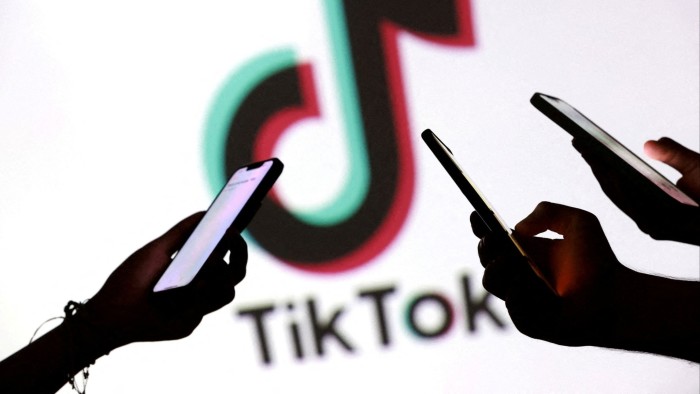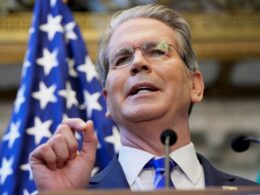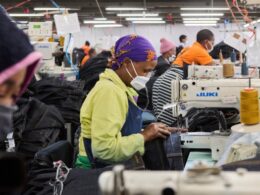Unlock the Editor’s Digest for free
Roula Khalaf, Editor of the FT, selects her favourite stories in this weekly newsletter.
China has said the US spin-off of TikTok being sold to American investors in a deal orchestrated by President Donald Trump will use parent company ByteDance’s Chinese algorithm.
TikTok’s powerful recommendation algorithm has been at the heart of a geopolitical tug of war over the short video app since the first Trump administration, when Beijing unveiled export controls on algorithms to thwart a forced sale of the app.
American and Chinese officials reached a framework agreement on Monday after two days of talks in Madrid to hammer out a deal that would keep the Chinese-owned app online in the US.
The Trump administration has repeatedly extended a congressionally mandated deadline for ByteDance to divest its American operations or face a nationwide ban in the US.
Wang Jingtao, deputy head of China’s powerful cyber security regulator, told reporters on Monday night after the talks that the two sides had agreed a framework that included “licensing the algorithm and other intellectual property rights”.
He said ByteDance would “entrust the operation of TikTok’s US user data and content security”, without elaborating.
China’s top two trade negotiators, vice-premier He Lifeng and deputy commerce minister Li Chenggang, indicated that Beijing would approve the export of TikTok’s algorithm.
US Treasury secretary Scott Bessent separately told reporters that the spun-off app would be controlled by American investors but preserve some “Chinese characteristics”, according to Reuters.
An Asia-based investor of ByteDance said the new US TikTok entity would use at least part of the Chinese algorithm but train it in the US on American user data.
“Beijing’s bottom line is a licensing deal,” said the investor. “Beijing wants to be seen as exporting Chinese technology to the US and the world.”
Another person familiar with the matter said TikTok had been developing a standalone US app in anticipation of a deal but was keen to ensure that content generated by American users would still be available to users in the “rest of the world” app and vice versa.
Some analysts have said that the algorithm needs to be fully operated by the US entity to meet the requirements of the divest-or-ban law signed by Joe Biden last year. That would preclude a licensing deal with ByteDance.
But the law allows the US president to determine if ByteDance has fully divested from TikTok, giving Trump the power to approve the deal.
Ahead of a previous April deadline, the White House was close to an agreement that would have spun off US TikTok into a company receiving new investment, potentially diluting the stakes of Chinese investors.
Under the terms of that deal, investors, including Andreessen Horowitz and Blackstone, would have owned about half of TikTok’s US business, while large existing investors, including General Atlantic, Susquehanna and KKR, would have held about 30 per cent of the new entity.
As part of that deal, Oracle, which already stores the personal data of American users on its US cloud servers, would have taken a small holding in the new business and also been responsible for securing the US app’s data.
It is unclear whether the broad contours of the current deal will match the April proposal. However, new investors are expected to join the consortium, according to people familiar with the matter, after some investors such as Blackstone pulled out.
Additional reporting by Antoine Gara in New York and Wenjie Ding in Beijing
Source link









